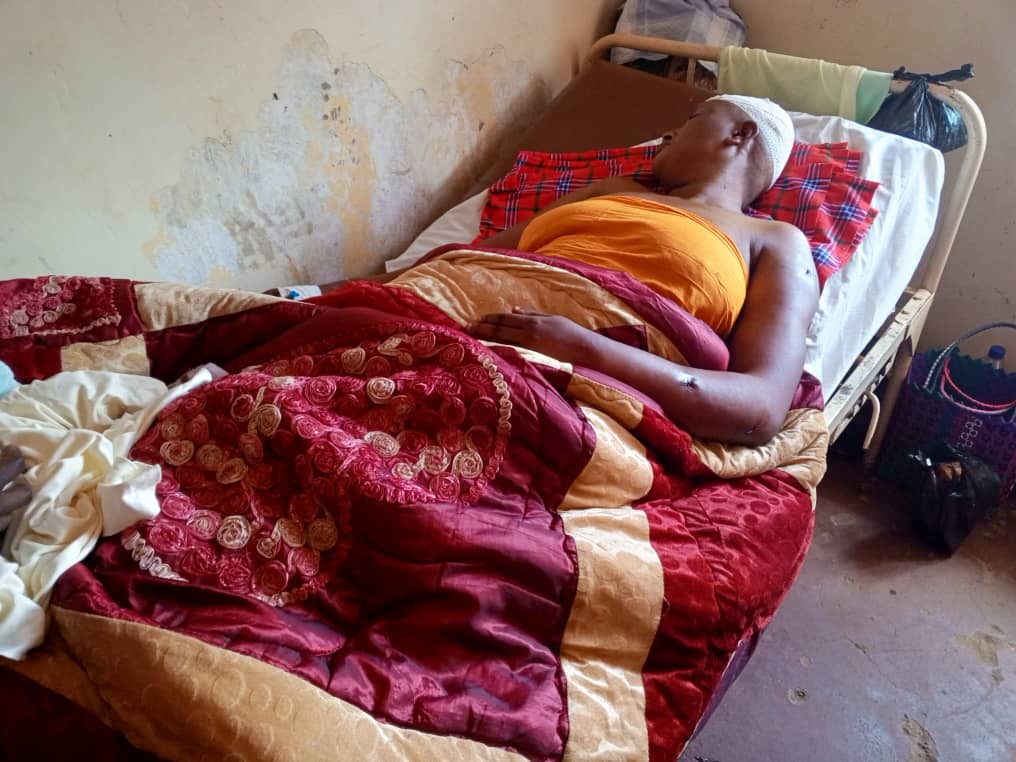Mulago hospital receives 120 kidney failure cases every week
At least 120 people are registered at Mulago National Refferral Hospital for dialysis due to kidney failure on a weekly basis, the hospital authorities have revealed.
According to the hospital statistics, out of every 100 referral cases to the facility, 20 of them are kidney related complications.
The hospital Executive Director, Dr Byaruhanga Baterana says that the ultimate goal of many patients undergoing dialysis is to obtain a kidney transplant, hence it is the reason the hospital of working speedily to launch an organ transplant unit.
Baterana says that the unit is in its final stages of completion with 90% of the work done. The unit will be accessible to Ugandans albeit at a fee.
“The people will be able to make some contribution towards the fees especially in buying consumables as well as medicines that they are pre-medicated on before, during and after the transplant,” Baterana said.
He however maintained that the contributions will not be general as there will be a committee to vet patients and determine whether they are able to make the contribution or waiver on those incapacitated.
The unit will be operating on at least two people on a weekly basis with each operation costing between Shs20m to Shs25m. This is far less than the Shs90m required for the same in India.
Law on organ transplant
There is no law governing organ transplant in Uganda at the moment hence organ transplant can’t happen.
Uganda currently follows the World Health Organisation’s (WHO’s) Guiding Principles on Human Cell, Tissue and Organ Transplants which only allow harvesting of a needed organ from a living donor.
In June 2011, Prime Minister Ruhakana Rugunda confirmed that government was drafting a law that will incorporate tissue and organ transplant in Uganda.
In June last year, Acting Director General of Health Services in the Ministry of Health, Dr Anthony Mbonye, said the principles of the Organ and Human Transplantation Bill, which target to regulate the organ transplantation, donation, harvesting and importation into the country, had been submitted to Cabinet but it is yet to be ready as of this day.
Understanding Dialysis
Dialysis performs the function of the kidneys if they have failed. According to the National Kidney Foundation, end stage kidney failure occurs when the kidneys ae performing at only 10-15 per cent of their normal function.
Therefore, in that condition, machines are employed to purify the blood so it can balance fluids or do the work kidney should have done. It is in other simple terms what one could call kidney-life support.
Properly functioning kidneys prevent extra water, waste, and other impurities from accumulating in your body. They also help control blood pressure and regulate the levels of chemical elements in the blood.
When your kidneys can’t perform these functions due to disease or injury, dialysis can help keep the body running as normally as possible. Without dialysis, salts and other waste products will accumulate in the blood, poison the body, and damage other organs.
There are two types of dialysis; namely haemodialysis, where the blood is put outside the body, purified and then returned to the body.
The second type is peritoneal dialysis, where the blood is cleaned from inside the body. It involves placement of a special fluid in the abdomen of a patient to absorb the waste from the blood which passes through vessels in the abdominal cavity. The fluid is then drained.
But what causes Kidney failure
According to American Kidney Fund website;
In most cases, kidney failure is caused by other health problems that have done permanent damage (harm) to your kidneys little by little, over time.
When your kidneys are damaged, they may not work as well as they should. If the damage to your kidneys continues to get worse and your kidneys are less and less able to do their job, you have chronic kidney disease. Kidney failure is the last (most severe) stage of chronic kidney disease. This is why kidney failure is also called end-stage renal disease, or ESRD for short.
Dibetes is the most common cause of ESRD. High blood pressure is the other cause plus; Autoimmune diseases, Genetic diseases and urinary tract problems.
Sometimes the kidneys can stop working very suddenly (within two days). This type of kidney failure is called acute Kidney Injury or acute renal failure. Common causes of acute renal failure include:
- Heart attack
- Illegal drug use and drug abuse
- Not enough blood flowing to the kidneys
- Urinary tract problems
This type of kidney failure is not always permanent. Your kidneys may go back to normal or almost normal with treatment and if you do not have other serious health problems.













